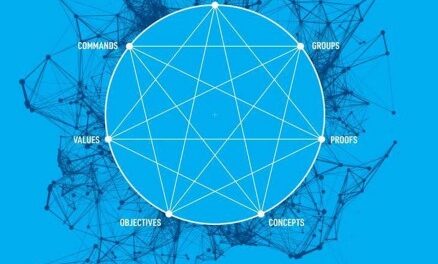
In his well-known book, Al-Hikam (Words of Wisdom), sheikh Ahmad Ibn `Ataa’illah As-Sakandari says:
You might think that He is giving you, while in reality He is depriving you! And you might think that He is depriving you, while in reality He is giving you! If through your deprivation, He opens the doors of understanding for you, then this deprivation is exactly a gift.
You feel bad about your deprivation because you do not understand. He might open the door of worship for you, but does not open the door of acceptance. And you might be destined to sin, but this becomes a means to ascension towards Him. A sin that produces humbleness and need is better than an act of worship that produces arrogance and prejudice.
At times Allah gives me and at other times He deprives me. Allah might test me through ‘good’ and ‘bad’, through ‘fortune’ and ‘hardship’, or through bestowing ‘blessings’ on me or ‘depriving me’ from them. But the reality of each of these could turn out to be different from the way I labeled it and the assumptions I made about it.
At this stage in our journey to Allah, Ibn `Ataa’ teaches us the importance of a deep understanding of the wisdom behind Allah’s ‘giving’ and ‘depriving’. Allah says:
{But as for a human, whenever his Sustainer tries him by His generosity and by letting him enjoy a life of ease, he says, “My Sustainer has been generous towards me”; whereas, whenever He tries him by tightening his means of livelihood, he says, “My Sustainer has disgraced me!” But nay, …} (Al-Fajr 89:15-17)
‘Nay’ here means that this is not a correct understanding of having ‘a life of ease’ or ‘tight means’.
Allah is saying that when He tries us by tightening our means of livelihood, this does not mean that He is disgracing us. And when He tries us by letting us enjoy a life of ease for a while, this does not necessarily mean good news. The question now is: how could we judge?
The sheikh is drawing our attention to a very important meaning in this word of wisdom which is that of ‘understanding’ (al-fahm): “If through your deprivation, He opens the doors of understanding for you, then this deprivation is exactly a gift”. And this is how we judge. If Allah deprives me by losing some of my wealth, opportunity, health, or family, yet at the same time, He opens the doors of ‘understanding’ for me, then this is not deprivation. It is a gift. In this case, the trial is a gift.
Before the correct ‘understanding’, I was looking at the material level only, at the five senses level, and the numbers and figures. I say, for example, I lost ten thousand dollars or I lost some of my health, etc. This is the material calculation at the material level.
But Allah might take ten thousands and give me the ability to understand, a feeling of content, a good deed, a strong will, a good friend, and closeness to Him, on top of all that. Therefore, my loss of ten thousands becomes an actual gift. It is even possible that Allah will give me hundred thousands later, if I work hard and try to learn from my lessons.
We have to understand the actual meaning of giving and deprivation. Sometimes, we think that a specific thing is a deprivation while it is the actual giving, and vice versa. A person might earn a large amount of money, for example, but does not thank Allah by sayings or actions. He might go on and waste his money in evil ways. Then, Allah may even give this person more wealth and more chances to return to Him. Allah says:
{for, behold, though I may give them rein for a while, My subtle scheme is exceedingly firm!} (Al-Qalam 68:45), and {Then, when they had forgotten all that they had been told to take to heart, We threw open to them the gates of all good things until -even as they were rejoicing in what they had been granted- We suddenly took them to task: and lo! they were broken in spirit; and in the end, the last remnant of those folk who had been bent on evildoing was wiped out. For all praise is due to Allah, the Sustainer of all the worlds}. (Al-An`am 6:44-45)
If Allah opens the doors of providence for you or grants you a request, He is calling you, as the Sheikh said, to understand. Firstly, you have to thank Allah so that the blessing is tied to you. Secondly, you have to reflect upon the wisdom and the meaning behind this giving and to be cautious about the trial it might involve.
The sheikh gives two specific examples. He says: “He might open the door of worship for you, but does not open the door of acceptance. And you might be destined to sin, but this becomes a means to ascension towards Him.”
Allah might open the doors for you to do some good deeds, such as praying, memorizing the Qur’an, giving out in charity, fasting, performing hajj, attending a course, teaching people, or/and leading them in the way of religion. But you have to be cautious here. Sometime you imagine that worship is in itself a gift from Allah, but in reality it is not. Why? It is because one might perform the action and miss the reward.
Allah says:
{They who spend their possessions for the sake of Allah and do not thereafter mar their spending by stressing their own benevolence and hurting the feelings of the needy shall have their reward with their Sustainer.} (Al-Baqarah 2: 262)
Here is an example of a good deed, charity, which is marred and rendered void by another action, such as hurting the feelings of the needy. This later action nullifies the charity and closes the door of acceptance and heavenly reward.
Some people do good, only to show off and to be praised by people, thus leading themselves to punishment.
{Behold, the hypocrites seek to deceive Allah – while it is He who causes them to be deceived by themselves. And when they rise to pray, they rise reluctantly, only to be seen and praised by people, remembering Allah but seldom.} (An-Nisaa’ 4: 142)
The main purpose of an act of worship is sincerity and gaining moral and spiritual benefits from it. A ritual devoid of sincerity and moral and spiritual benefit is worthless. The Prophet Muhammad (peace and blessings of Allah be upon him) said:
“Whoever does not give up forged speech and evil actions, Allah is not in need of his leaving his food and drink in fasting”.
This means that Allah will not accept his fasting, which it would look like a good deed while it is not.
The sheikh gives us another example related to the issue of acts of worship and sinning which requires an accurate understanding. The sheikh says: “And you might be destined to sin, but this becomes a means to ascension towards Him”. Imam Ibn Al-Qayyim Al-Jawziyyah says something similar in this regard: “A sin may produce humbleness and need so that it takes one to Paradise. An act of worship may produce pride and prejudice so that it takes one to Hell”.
Of course, sinning itself does not lead one to entering Paradise. But if the sin already committed and the person repented sincerely to Allah, it might be good, in the big scheme of things. This is the person who repented and changed his ways, who always remembers his sin with grief and tries his best to compensate with doing good deeds. Therefore, sinning that produces humbleness and need becomes a gift from Allah, in the big picture.
But this does not mean that one commits sins and says that I am sinning in order to eventually be humble and repent to Allah. This is a wrong and deviant understanding that is unfortunately adopted by some ignorant people who claim to be Sufis.
On the other hand, an act of worship that produces arrogance in one’s heart is an evil deed, not a good one. The Prophet (peace and blessings be upon him) said:
“He who has in his heart the weight of a mustard seed of arrogance shall not enter Paradise”.
It all depends on our reaction. The Prophet (peace and blessings be upon him) said:
“How wonderful is the affair of the believer, for his affairs are all good, and this applies to no one but the believer. If something good happens to him, he is thankful for it and that is good for him. If something bad happens to him, he bears it with patience and that is good for him”.
This hadith indicates that I am the one who brings good or bad outcomes to me. It is all up to me! If I am thankful for Allah for the good things that happen, this is good for me. If I am patient when bad things happen to me, this is also good for me. However, if I feel arrogant when good things happen, this is an evil outcome. If I am impatient when bad things happen, this is also an evil outcome. Thus, based on my reaction I determine whether what happens to me is a heavenly gift or otherwise.
But Allah always chooses what is best for people, and it is up to them to decide how they receive Allah’s choices.
{In Your hand, Allah, is all good. Verily, You have the power to will anything}. (Aal `Imran 3: 26)
====
ٍSource: www.onislam.net — Ibn Ataa’s Pearls of Wisdom — Jasser Auda





